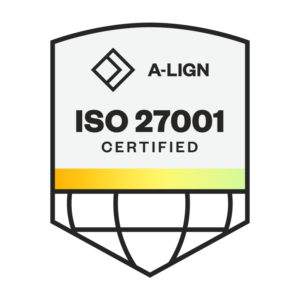At Veoci, we already have an impressive number of skilled practitioners involved in the development and implementation of our software, so we are thrilled to welcome Anthony DeGeorge to the team.
Nearly 20 years of experience as a first responder and emergency manager (who used Veoci in the field) has prepared him to create and implement solutions that will improve operations for our healthcare clients.
Anthony has had a career full of many ups and downs, which comes with the territory, but he perseveres and maintains a positive attitude to achieve his ultimate goal: helping others.
The Realities of Emergency Management
Anthony got his start as a first responder in 2001 when he joined Lakeland Fire Department in New York as a volunteer. He had been working in retail, but after 9/11 he felt compelled to do something else – something that would help people – so he became an EMT.
His experience volunteering at the Lakeland Fire Department was like a gateway to a career in EMS. In 2003, Anthony joined North Shore LIJ Health System as an EMT and three years later became an advanced life support paramedic. In 2009, Anthony started as a critical care paramedic (CCEMTP) before being made a supervisor at North Shore LIJ EMS in 2010. He was promoted a year later and made the communications supervisor for the EMS division at North Shore and held that position for five years before becoming an Emergency Manager at the then renamed Northwell Health in 2016.
Of all these positions that Anthony has held, he says his favorite is emergency management because of all the training he got to be a part of. As a certified instructor for some of the Center for Domestic Preparedness (CDP) programs, Anthony had the opportunity to conduct numerous training sessions, such as Hospital Emergency Response Team, Standardized Awareness, and Framework for Healthcare Emergency Management.
One big obstacle of being an emergency manager, however, is getting people engaged and interested in training when there hasn’t been a big event. Decon, for example, is a must-have training. If a contaminated patient gets into your emergency room, it can shut down the entire facility.
But this doesn’t happen often, which makes it difficult to engage people and get them to see the relevance.
Anthony would try to engage people by making his training fun. He would always add a hands-on component, like donning trainees in HAZMAT suits to encourage active participation. Through the CDP, FEMA certificates were also offered for most of the training Anthony conducted.
It makes sense that Anthony enjoys training because his ultimate motivation for working in EMS and emergency management is that he finds helping people extremely rewarding. Ultimately training is like helping people help others. Anthony says that in this line of work it’s not about the compensation, it’s about what you can do to keep people safe and help them in their time of need.
Highlights of a Career
Between delivering his own son in the living room of his house and being the medical committee chairman for the US Women’s Open, Anthony has done some pretty incredible things throughout his career. So what’s the key to success for an emergency manager? According to Anthony it’s to keep planning.
Planning is at the core of what emergency managers do. Anthony says that a lot of people get into a relaxed state when they’re too far removed from the last emergency and it often takes something big to happen to renew interest. He credits his own success to consistent planning, even when it doesn’t seem necessary. You’ll never be sorry if you overplanned, but you may be sorry if you didn’t plan at all.
When it comes to your plan, Anthony cautions that you shouldn’t get hung up on the little details. Your plans are always going to be changing. They are “living, breathing documents.” Anthony’s advice is to get your plans to the point where you feel they’re usable. Then you drill on them, test them, and make the edits they need.
Beyond planning, in order to have a successful emergency management department you need unity. Being an emergency manager is not just one person’s job – it takes people from every discipline to have a successful EM department. In Anthony’s discipline, this means that nurses, doctors, engineers, leadership, etc., all had to come together and buy into the emergency management philosophy and goals in order to make it work.
The Evolving Field of Emergency Management
Since Anthony started his career after 9/11, he came into the field as a lot of changes were being put into place. Professionals were beginning to think about things they had never thought about before, such as chemical attacks, which transformed the approach to emergency management.
Another major change Anthony saw ushered into the field of emergency management was the introduction of technology to the first responder world. When he first started, there were basic computers in the ambulance NYC 911 system, now there are much more advanced devices that can track exact locations and digitize databases. There are also numerous smartphone apps available to support first responders and emergency management professionals.
Anthony tells us, from firsthand experience, that having these resources available to you makes a huge impact on the profession. He used Veoci on the job at Northwell Health for things such as incident documentation, inventory management and drills. He said, “Everything we used to do on pen and paper – having [Veoci] in your pocket at all times is a huge benefit!” Most hospitals only have three hard copies of their EOP in the building; any nurse manager at 3:00AM on a Tuesday most likely can’t tell you where that is. A platform that creates visibility around this is invaluable and makes a huge difference in times of crisis.
Going Forward
As technology plays an increasingly prevalent role in the field of emergency management, it is so important to have people like Anthony who know how to use it appropriately to streamline operations and improve communication. His experiences can help countless professionals usher their programs into the age of technology and supplement the resources at their disposal.
At Veoci, we’re thrilled to have a practitioner like Anthony DeGeorge in our midst. His numerous years of experience as a first responder and emergency manager will be invaluable to his role as a solutions expert. Healthcare professionals can expect to benefit from his vast expertise and first-hand experience with the platform as he helps to develop and implement solutions in healthcare facilities across the country.








